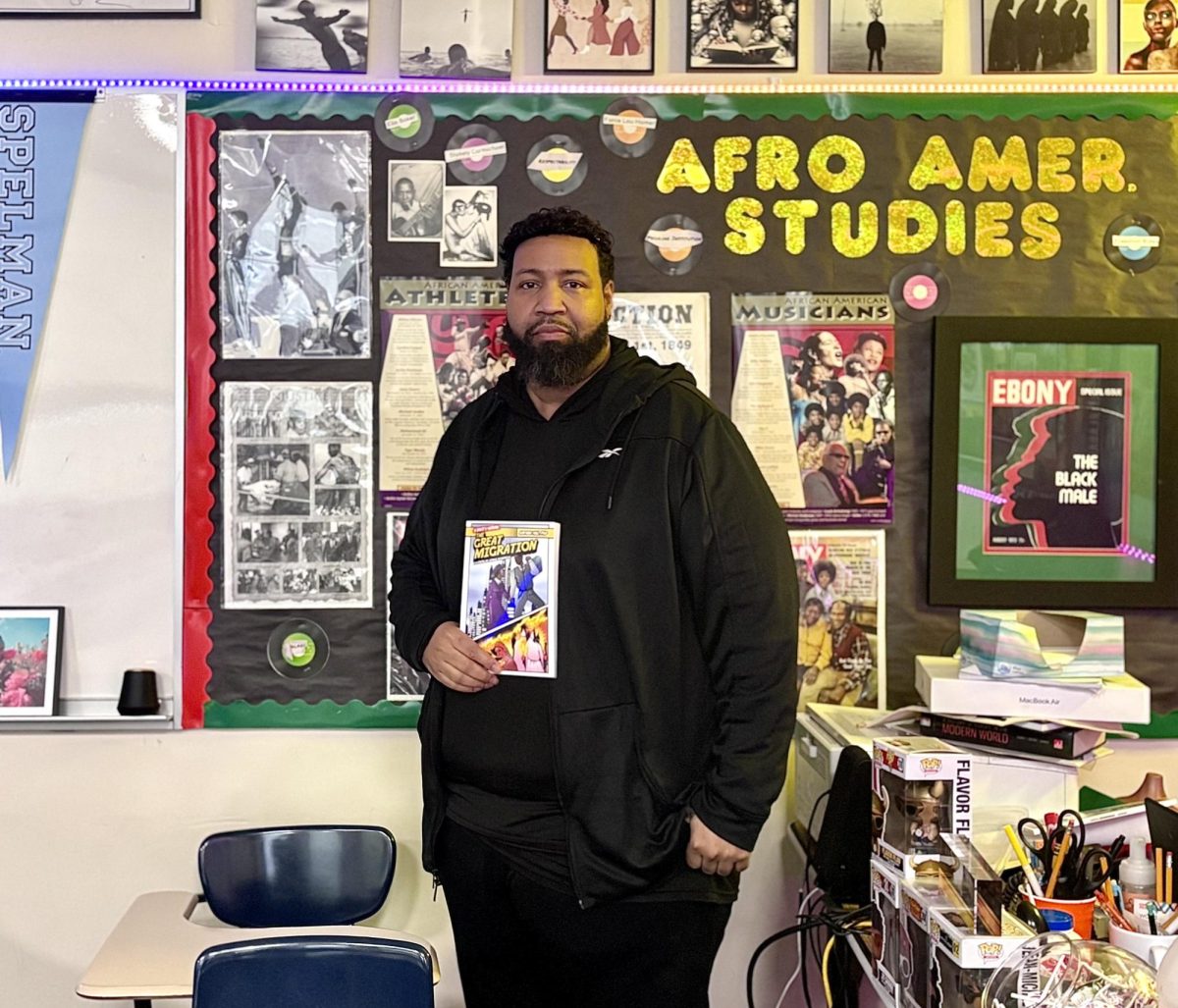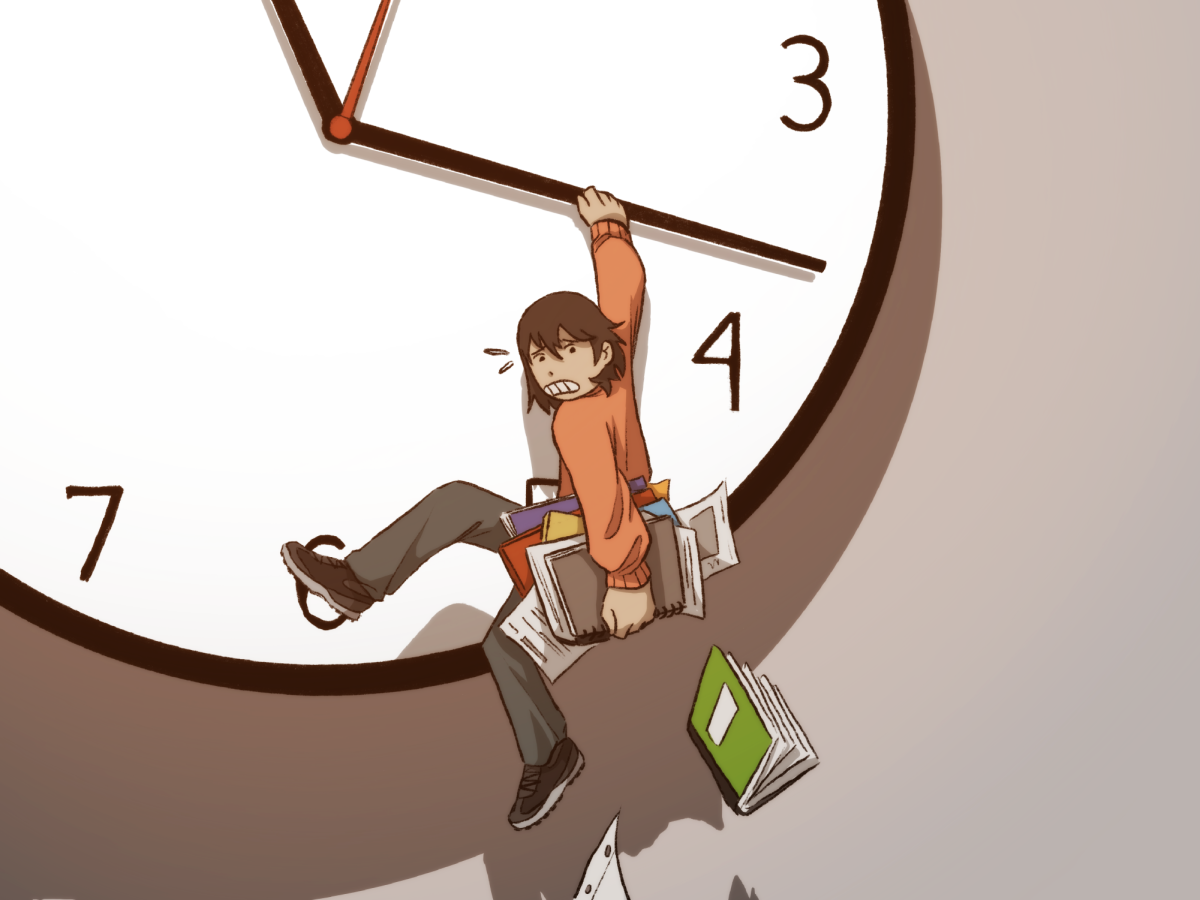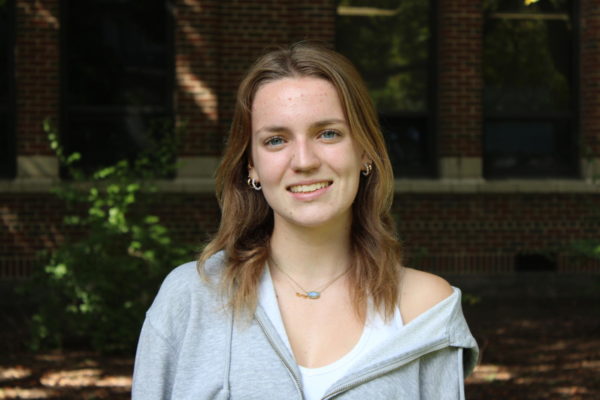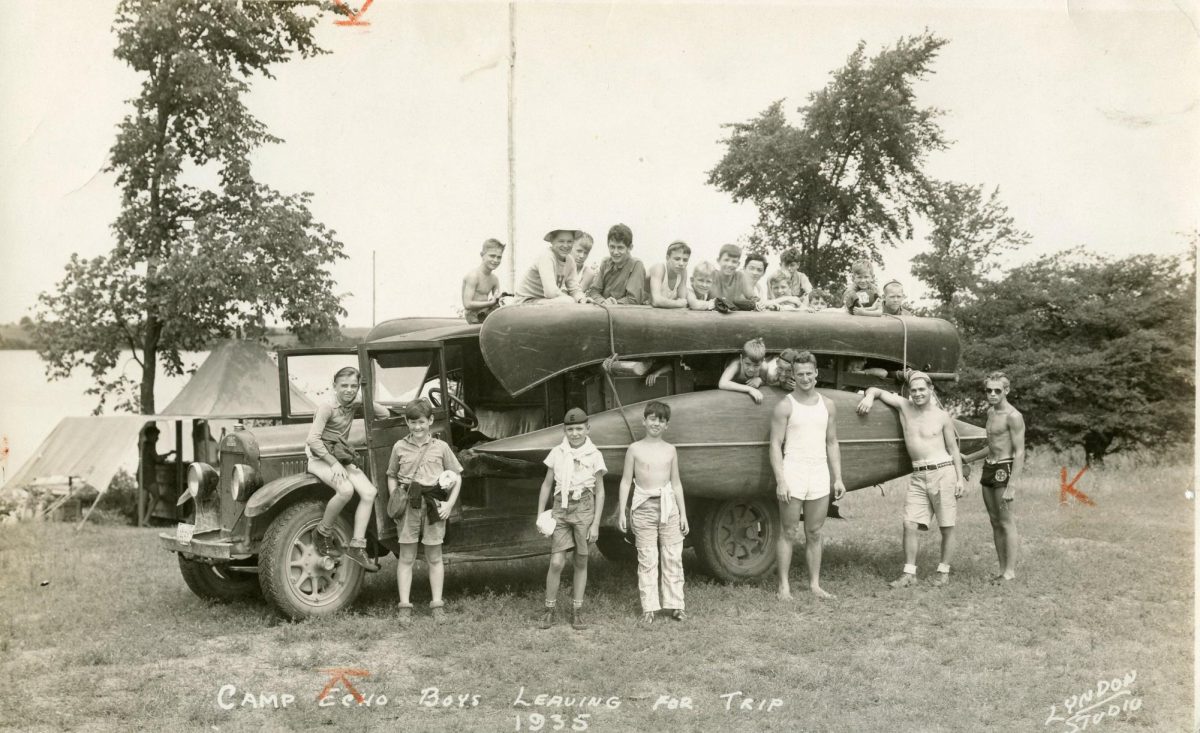
When the school year comes to a close, a new round of campers meet at Evanston’s YMCA to board the bus to Camp Echo, a tradition that’s been going on for the past hundred years. To recognize the 100th anniversary—a milestone for the Evanston community—Camp Echo will be throwing celebrations throughout the year. The meetup before the bus serves as a reunion for some who have been to camp before, or as a completely new experience for first-timers buzzing with excitement. In traditional cabins in the woods of Michigan, all campers will practice learning the core values of Camp Echo: being caring, honest, respectful, responsible and having fun.
After campers experience a bus ride full of fun camp songs, they unload their many bags onto Camp Echo’s grass and meet the other campers and counselors who they will spend the upcoming weeks with. Camp Echo includes typical summer camp activities, with water skiing on the nearby lake, horseback riding, archery and perhaps most popular, the big group campfires. Executive Director Bernard Rocca reflects on the atmosphere of Camp Echo.
“[Camp is] a great way to make new friends and connect Evanston as a whole,” he says.
Rocca, a long-time Evanston resident, went to camp from 1994 to 1997. Since he took the role as Executive Director in 2010, there have been substantial changes to the program, and with 2024 marking the one-hundredth anniversary of Camp Echo, many Evanston residents are taking the time to reflect on the camp that they hold close to their heart.
The Camp Echo that started in 1899 has transformed from a nomadic camp—with campers and staff staying in places ranging from the shores of Phantom Lake, Wisconsin to Muskegon, Michigan—to a permanent property in Fremont, Michigan that many campers have come to know and love.
One of the biggest changes that camp has undergone is the switch from a focus on the Christian faith to an inclusive space for people of all faiths.
Adam Chiss, who started as a camper in the 1980s and later became a counselor and trip guide, experienced some Christian practices as a Jewish camper, but didn’t think them to be too notable. Chiss explains his experience with the chapel, a quintessential Echo location that provides students with a chance to reflect and express gratitude in the heart of the woods.
“When I first went, I noticed a cross in the background of the chapel, but now [campers] meet at an amphitheater for what they call morning reflections that are more humanistic and aim to tell you a story,” Chiss states.
With 70 percent of campers coming from Evanston and 90 percent from the greater Chicago area, Rocca emphasizes the importance of including people who, historically, have not been a part of the Camp Echo community.
The camp started as a predominantly white male Christian camp, which created barriers for those in Evanston who didn’t fit that background but still wanted to experience the camp. To make Camp Echo a space for anyone who wants to come, staff members have worked to improve accessibility with fundraisers in the Evanston community.
By providing assistance on a need-based scale, they were able to assist between 150 and 200 campers by covering 15 to 90 percent of their camp fees. This is all possible due to the support of donors in the Evanston community. With this help, the Camp Echo staff hope to make even more improvements in the next century of camp.
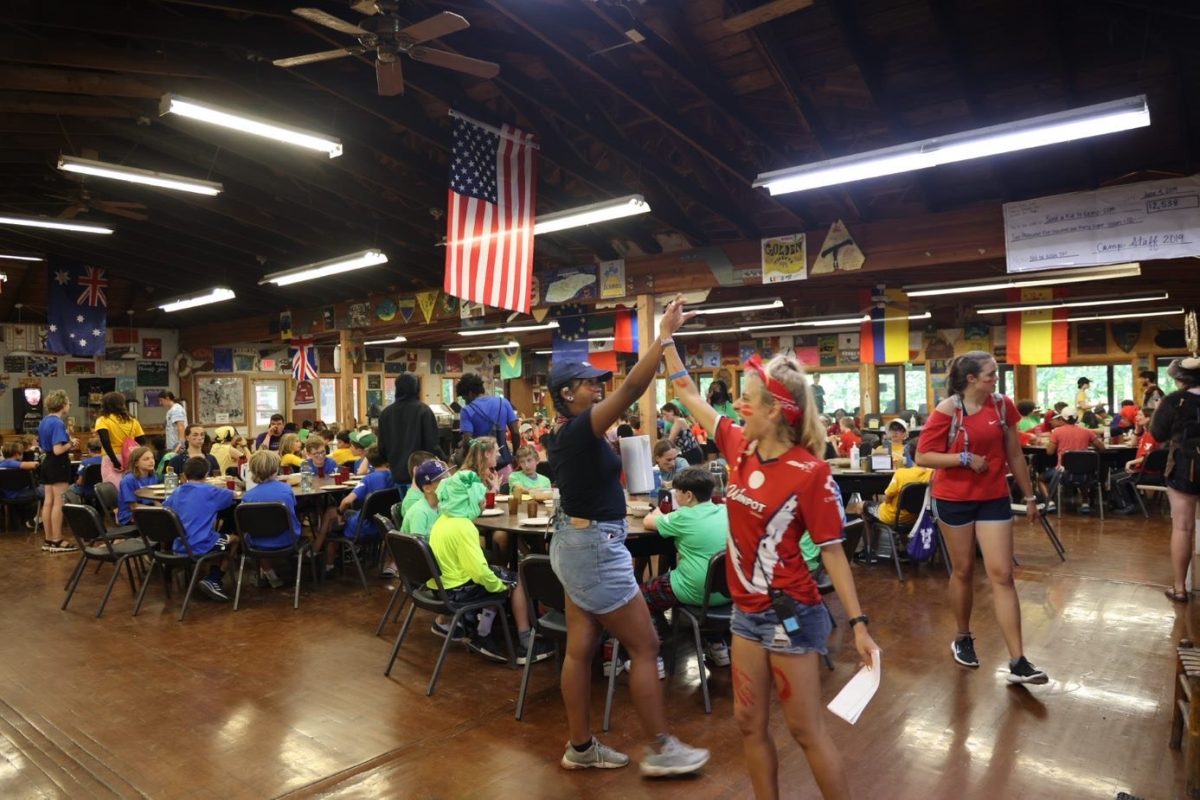
As overnight summer camps became more popular over the 20th century, more and more campers began to attend Camp Echo. In 1924, the camp commenced in Fremont with eighty people—all boys-–but in 1947, Camp Echo expanded to a two week girls session at the end of the summer. In the 1960s and 70s, boys arrived at the beginning of the summer, while girls came at the end, with the camp not becoming co-ed until 1982.
The decision to go co-ed gave campers the opportunity to mesh and meet each other through the camp activities that they choose, named “camptivities,” and other camp experiences. These activities also make a more accepting space for campers who don’t identify with either gender, with recent additions of all-gender cabins being part of Rocca’s goal to provide “a more inclusive space for people of different gender identities.” As camp becomes increasingly accessible for all kids, another focus is making the experience possible for all ages.
The Camp Echo in 1899 only included teenagers and younger kids, but now programs have developed for people of all ages. One of those programs is family camp, where families come to the property together for a long weekend or five-day week. This provides Camp Echo with a way to introduce newer families to camp.
“I think sending your kid to camp is one of the hardest things you can do as a parent, especially for families that don’t have a history or connection to camp,” Rocca says. “So for families at family camp, we all experience camp together and it builds trust for the parents to send their kids by themselves later.”
The traditional activities for families are fairly similar to those at the main camp, but a lot of the areas are open all day, allowing for kids at family camp to gain independence as they get older and choose their own activities. This serves as a gateway for family campers to transition to the main camp, where they won’t be accompanied by parents.
Chiss’ family typically goes during Labor Day with their close family friends, and with this year being their thirteenth year in a row, the experience of showing their kids camp and bonding with other families always makes them want to come back.
“Camp Echo [is] just such a special place,” Chiss states. “For me as a kid, I really felt like I belonged. Lots of my friends growing up in Evanston went there, along with meeting new kids from other schools and other parts of town, so there was no question about going back”.
Chiss has maintained childhood connections from camp—an example of what Camp Echo does to connect people when they return home. He speaks on the connections he made over the years.
“The people I met are still in my life, whether they were people I went to camp with as a camper, or kids that I had as a counselor, like Bernard, who I still call a friend,” Chiss voices.
Argin Malhotra, a sixth grader who has attended camp since 2021, explains how he has benefited from meeting people in his prior years at camp.
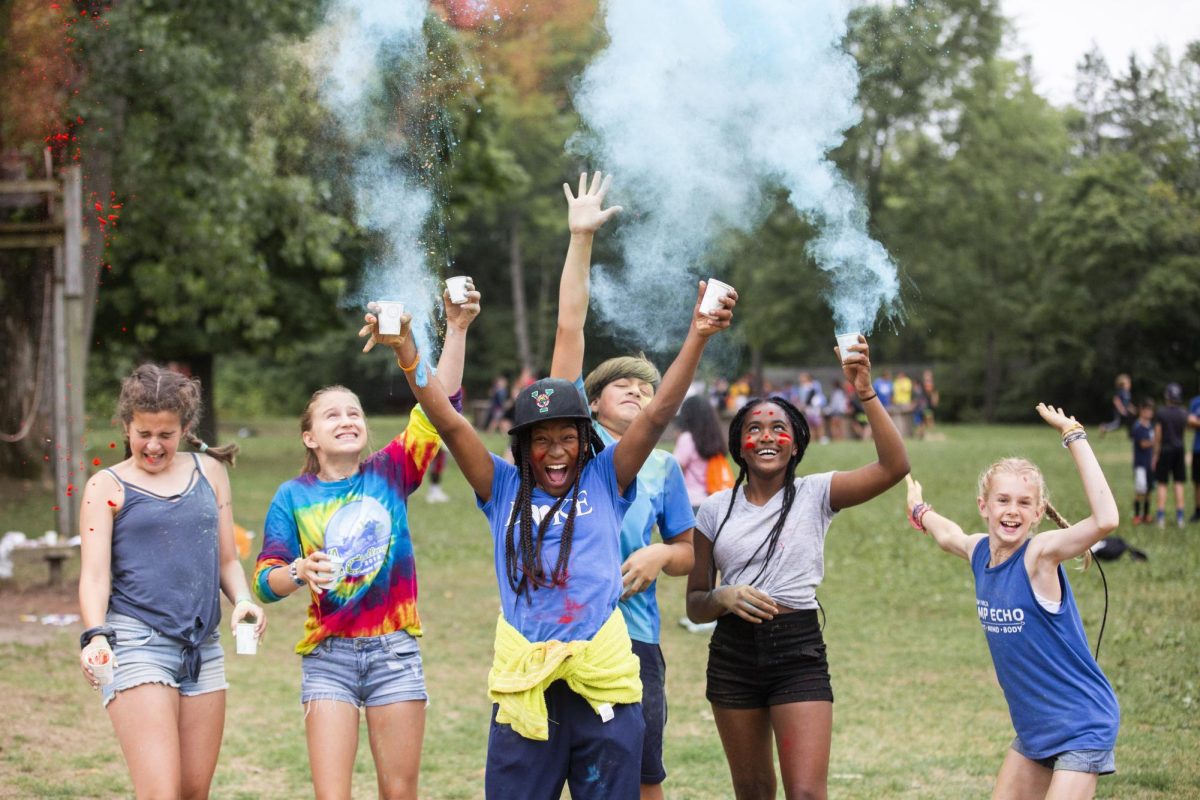
“There was a boy in my cabin on the swim team that I didn’t practice with,” he explains. “But now that I know him, it’s fun to say hi when I see him there.”
The friendships that campers make expand the amount of people they know going into high school, which can be socially beneficial.
“I think it’s a really great part of our program that we connect kids who live in different parts of Evanston, because Evanston might seem small once you get to the high school and everyone’s together,” Rocca explains. “But when you look back and think about elementary school and middle school and becoming friends with someone who lives on the other side of Evanston, it’s pretty cool.”
This is a success that Camp Echo has had for many years, and with the celebration of the 100th anniversary, Rocca is aiming to connect more with underrepresented communities in Evanston. His efforts are aided, in part, by where he lives: he spends nine months per year at Echo and the other three in Evanston. This is unlike the typical camp director who resides at camp year round, and by being a part of both communities, Rocca can focus on the connection between Michigan and Evanston.
“I think there’s something magical about being on our property in Michigan, but I think finding ways to bring the positive impact of camp to more people in our community is our overarching goal,” Rocca says.
As an acknowledgment of the hard work put into making camp the best it can be, the Camp Echo community kicked off its 100th anniversary festivities on October 12th at Double Clutch brewery in Evanston. Over 150 alumni and community members met for an evening to reminisce about camp experiences and reconnect while recognizing all that Camp Echo has done for Evanston.
Chiss was one of a couple people at the event who gave remarks about what camp means to them; the speakers were picked from the different generations of campers to show the difference in experiences from year to year.
“Camp isn’t just a physical place, but it’s sort of an idea and an experience, so let’s try to bottle that up,” Chiss says.
To continue celebrations, there will be an open house day that the ‘Y’ is calling Community Day, where the community can enjoy the YMCA for free on April 27, 2024. Everyone is welcome to stop by between 1 to 5 pm and experience fitness activities led by instructors as well as arts & crafts and camp activities that will resemble the fun of camp. Opening up this space to the public allows all communities to be a part of the Camp Echo ecosystem and to enjoy what it has to offer.
To bring the year-long celebrations to a close, there will be a Centennial Celebration Weekend on September 20 to 22 on the Camp Echo property. The weekend is open to all alumni to celebrate with festivities like campfires, camp songs and stories while experiencing the campground after its many changes over the years.
Lastly, Rocca has planned for people to bury a 100th anniversary time capsule at camp.
“Over the years, we’ve done a few time capsules at camp where everyone gets to contribute something and put it in a container and open it 25 to 50 years later,” Rocca explains.
This gives the opportunity for future generations to open the capsule as a point of reflection to see how the camp has changed and stayed the same, while recognizing how Camp Echo has created decades of memories that will last staff and campers a lifetime.
“We’re grateful to all the people who have come before us, and we know we can’t be too rooted in the past,” Rocca concludes. “So we look forward to better serving the community and seeing what the future of Camp Echo holds.”


